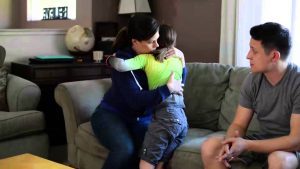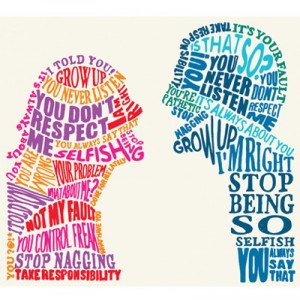Parental separation and divorce is difficult for everyone in the family, including teenagers. Here are some things you can do to help your adolescent manage some of the changes at this time:
 Discuss the changes and your expectations of your teenager upfront. Try to spend time discussing all the practicalities of the changes about to happen with your teenager. Include them in the decision making process as much as possible as this will give them a sense of control over an, otherwise, unpredictable situation. In this sense, discuss where they will be living, when they will visit the other parent and for how long, how you will communicate when you are not together, and what you expect from your teenager.
Discuss the changes and your expectations of your teenager upfront. Try to spend time discussing all the practicalities of the changes about to happen with your teenager. Include them in the decision making process as much as possible as this will give them a sense of control over an, otherwise, unpredictable situation. In this sense, discuss where they will be living, when they will visit the other parent and for how long, how you will communicate when you are not together, and what you expect from your teenager.
- Make sure that you discuss the fact that routines, rituals and expectations will remain the same. In other words, that curfews won’t change, routines around dinner times, bed times, homework and visiting friends, for example, will remain largely the same. Make sure that both parents are on the same page regarding the enforcement of boundaries so that each home consistently ensures that expectations are met.
- Do not be afraid to talk about feelings. Teenagers are intensely emotional by nature so parents may feel daunted by talking about their feelings with their teenagers. Remember that your teenager is not an adult, despite their best attempts to convince you otherwise. They are likely to feel scared and insecure. They may even feel angry and resentful. In many cases they may even feel guilty and carry some blame for the divorce. It is very important that you give your teenager the space to talk about these feelings with you. If you find it difficult to do so then find a someone with whom your teenager can talk.
If you feel you and your teenager would benefit from additional support at this time, it may be helpful to talk with one of our psychologists.









